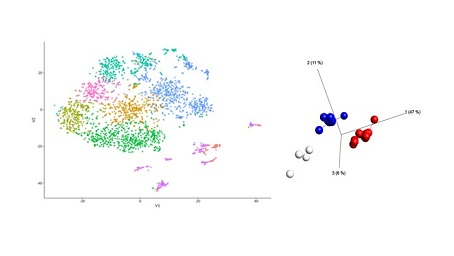Novel immuno-oncological strategies based on studies in bladder cancer
Disease facts
Bladder cancer is the 7th most common malignancy in Sweden and the occurrence is continuously increasing. In 2016, almost 800 people succumbed due to the disease in Sweden. There is a male predominance and globally, bladder cancer is the 4th most commonly diagnosed cancer in men and 12,000 men are estimated to die from the disease every year. In this research project, we study immune cells infiltrating bladder tumours in order to develop new strategies to activate an anti-tumour immune response.
Checkpoint inhibitors, which release breaks on T-cells, have had unprecedented effect on cancer patient survival and are currently revolutionizing treatment regimens. However, only around 20-30% of bladder cancer patients have a therapeutic effect from the checkpoint inhibitors currently used. By exploiting novel strategies to stimulate anti-tumour immune responses, patient survival can be increased.
Cell based analyses
We analyse various types of T-cells and myeloid cells, such as dendritic cells, which infiltrate bladder tumours, and additionally analyse corresponding cells from non-malignant bladder tissue. By sorting out the immune cells of interest from the tissues, we have enabled transcriptomic studies (RNA sequencing) down to single-cell level.
The data is used to map the immune cells infiltrating bladder tumours and to identify potential novel drug targets for further exploration. The in-house antibody development platform enables development of target-specific antibodies for functional evaluation and the antibodies that stimulate an efficient anti-tumour immune response can pave the way for improved survival of cancer patients.


